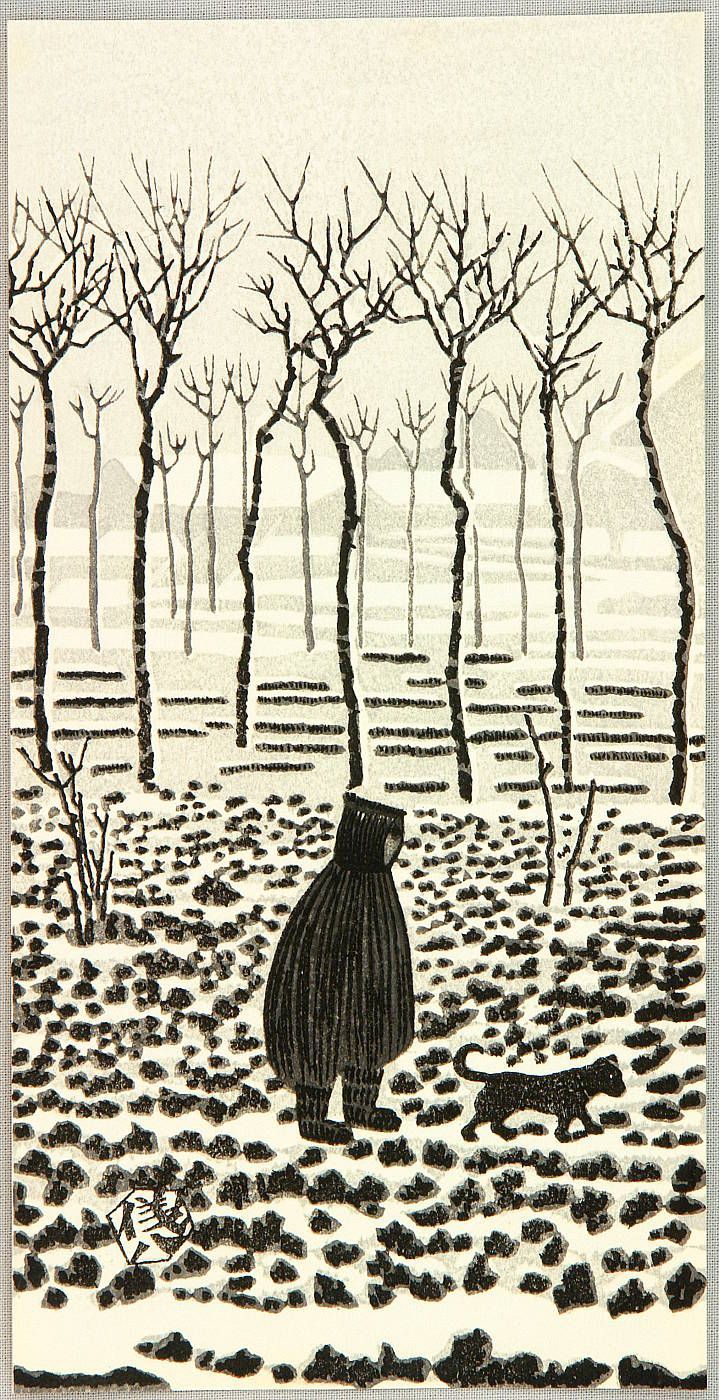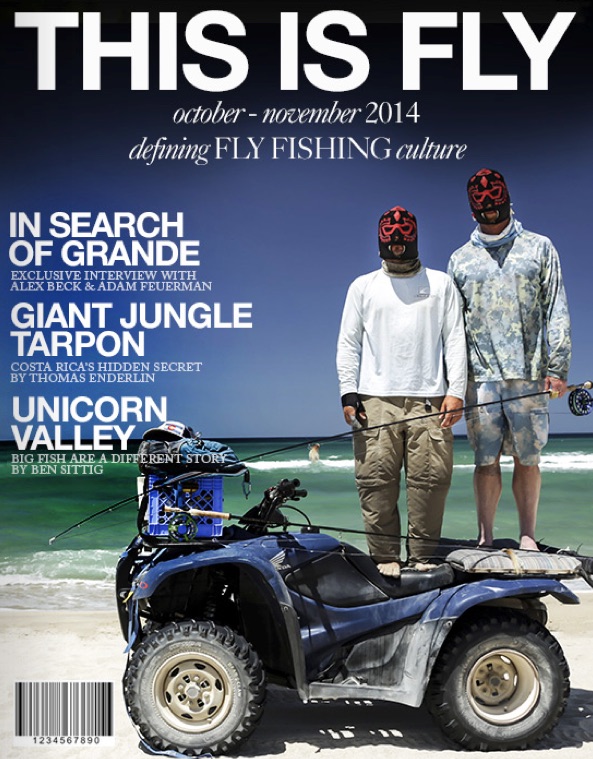My faulty vision provides a good break for guides though, because they get to fish half the time. Since age five when we got our first wood rowboat, a lumbering five-seater, for thirty-five bucks, I’ve had a passion for rowing that comes close to fishing. I mean fishing is still primary, but if it’s with a dry fly and the fly begins to disappear from the field of my vision, I’m eager to row for an hour or so before I resume. Plus I like watching a fine, accomplished angler at work.
And with rowing there’s the added advantage of studying the landscape and current. Coming from an agricultural family I never lost my interest in farming and ranching practices. As a county ag agent my father judged cattle at county fairs, and, having accompanied him, I look at all cattle with a critical eye. I can say “long back, short neck, thin withers,” then move on to varieties of birds. Rowing enables me to bird watch, and though I’ve been at it sixty-five years, since the second grade, I’m limited because of my poor vision. Last late May there were five different warblers on the Big Hole River, but though only twenty feet away they would appear and then disappear as if on a timer, the same as the leader in my fingers. There it is. There it isn’t. One stormy day on the Big Hole we saw seventy-two colorful Western tanagers in a riverine thicket at migratory time. Another day there were thousands of swallows coursing above the stream, and I counted fifty common nighthawks—a wing brushed my face—plus we caught thirty-five brown trout, adding to the birding pleasures during a nearly two-hour-long hatch, an occasion a trout fisherman lives for. However, it hasn’t happened again, so back to the logic of fishes and birds.
Fishing is a mental feast. I’ve written three dozen books and know that literature can be a truly nasty business. Now that I don’t bird hunt much anymore, except for doves and a few quail along the Mexican border where we live in the winter, fishing is the activity that ensures my sanity. Simply thinking about fishing during a recent eighty-day plague of shingles was helpful. I early determined that my wobbly casting arm was okay by throwing the ball daily to Zil, my Scottish Labrador. I couldn’t write because of the minute-by-minute painful spasms, but I could remember minutely.
Early in my career I did a goodly amount of sporting journalism, which now seems to have been problematical. At first it was wonderful because I was broke, and writing general sporting pieces for Sports Illustrated paid well, but then I branched out into magazines more of the trade variety—the hook and shot type where my possible novelist talents could be less well displayed. I have to be able to include the human community, possibly Native history, geology, geography, and the natural world. So I don’t do it any more because such magazines don’t exist. I recently read an article about an area I love on a back road between Vera Cruz and the capitol, Jalapa, in Mexico. There’s a truly mighty river there, and orchids hanging from phone wires. This article mentioned nothing except Americans and their paddleboats and the imminence of drowning—not a bad idea—and nothing about the inhabitants, the jaguars, the monkey-eating eagles. What’s the point? It would be okay if they were writing about old stuff, like baseball or football. We’ve been told quite enough about Wrigley Field, but kayaks in a remote place do not simply exist in the void of fast water. There might be something to be said about minimalist trout magazines that exist for trout obsessives, like stamp journals do for collectors.
Which is to say that I suppose I’m ultimately interested in not missing anything in the fishing experience. Sometimes it’s a matter of taste. No one seems to know more about trout than Tom Rosenbauer of Orvis, whose book about nymph fishing is marvelous. However, I don’t care for nymph fishing, and there’s currently a shameful reliance on it by guides and their miserable casters who drag their nymphs and pink indicators from the back of drift boats. Of course the guides just want clients to catch fish, even though there’s no negotiable difference between that method and perch and bluegill fishing with bobbers. Even my uncles knew that—they used to net grasshoppers and chum with a gallon of hoppers, which is more effective than nymphing.
In a new Everyman’s Library anthology of fishing poems, The Art of Angling (2011), there is a snippet from Ted Leeson’s The Habit of Rivers (1994) that seized my attention: “The craft of angling is the catching of fish, but the art of angling is receptiveness to those connections, the art of letting one thing lead to another until, if only locally and momentarily, you realized some small completeness.”
This reminded me that what has urged on and freed my mind most for my fiction and poetry has been walking, solo driving trips, and fishing. We all know the openness and relief of launching a skiff or stepping in the shallows in our waders for a day of fishing. “Free at last, free at last, thank God almighty, I’m free at last.” Your professional and personal problems drift away into the smell and sound of the river, into the peopleless landscape that neutralizes the poison. The connections that Leeson speaks of come together by themselves in this state of grace. This metaphor of wholeness enacts itself because you are being drawn into the patterns and rhythms of the natural world. As Octavio Paz said, “Beyond ourselves,/on the frontier of being and becoming,/a life more alive claims us.”
On a more ordinary level, older fishing is gentler, far less aggressive and far less acquisitive. One day it was so gentle I fell asleep while rowing; sometimes a nap is needed. I’m not just there to willy-nilly jerk a fish out of the water. One day I got stuck trying to sleep on the floor wrapped around the seat in the bow of the boat. We take our time in May and June with long walks to find mushrooms for dinner. Another advantage for a guide is that I never want more than a five- or six-hour day, which enables my guide to fish again. When we’re done for the day on the Big Hole he continues down to the Beaverhead for late afternoon or evening fishing.
In terms of competition and aggression I have a truly ugly memory. Back when I was working with Guy de la Valdène on his tarpon movie, we were shooting down at the marina in Key West when a flotilla of Miami anglers pulled up. They were a club and had caught hundreds of fish, which they slammed on protruding spikes on a huge board. I got out of there fast, in a state of nausea, so I don’t know what they did with the fish. I have never seen anything so repellently at odds with the spirit of angling. Even catch and release contests seem questionable to me, but there are those who are addicted to them. But then I’ve always been irked by fishing in a barrel. At one time I caught so many browns on consecutive casts of salmon flies that I was irritated that I didn’t get to make a decent cast. I like the idea that you can catch a lot of small brook trout for breakfast, but it’s hard to catch big ones. Once I caught a three pounder on a small Muddler Minnow after a two-hour walk into a beaver pond, but we didn’t get out until 4:00 am. We didn’t have any alcohol along, which was unwise indeed. So is stepping into a runway in a beaver pond.
On the lighter side, when fishing there are my lunches. In the past I was also the food columnist for Esquire, and I have written a book about cuisine called The Raw and the Cooked, which is to say I’m peculiar and particular. You can’t buy a good sandwich in Livingston early enough in the morning, though there’s now an excellent wine and cheese store, the Gourmet Cellar. I’m lucky to have Mario Batali and his father Armandino as friends so that I’m never short on fine salamis. Some reasonably good bread and fine French, Italian, or Spanish cheeses and some Louisiana hot peppers and we’re in good shape. I don’t drink while fishing because of Type 2 diabetes and a consequent tendency to fall asleep. We’re fortunate when we fish the Big Hole or Missouri because we can stop at Butte’s Front Street Deli and get all the food we need for fishing in one stop. If the weather is coldish I take a good bottle of wine, always French, for the last hour. Good food while fishing is a morale factor. If you eat shit you feel shitty, to paraphrase Roderick Haig-Brown.
Anglers can be divided into many different groups depending on their interests, but each one believes it is completely right. I am relatively modest, being so often wrong. As a young man I was a very aggressive wader in the Manistee and the Pine in northern Michigan. After I went under five times I became more cautious, and then my dad’s secretary’s husband was swept under a logjam and drowned, and the caution stuck. The Manistee has some huge mayfly hatches on broad stretches of river, but that wasn’t worth death when Marilyn Monroe was still alive.
When I started thinking about fishing as one grows older, I assumed that it wasn’t that much different, but frankly it is, because you are a different human being. I no longer fish the Middle Branch of the Ontonagon from five in the morning until eleven at night. That was when I was home from a far away job and the odor of a trout stream was highest on my ethyl index. It still is.
Most of the changes in older fishing are toward simplification. I must own twenty-five trout rods but only use two. I think I know where they are. Of the thousands of flies I’ve owned I doubt if I ever use more than a half dozen a day. In short, I don’t want to be best. If someone asked me to go bluegill fishing with worms I’d say yes. In the Yucatan I speculated on catching an anaconda with a fly but no one was eager. When you’re on free time, limitations are not acceptable. Several times I’ve nearly drowned trying to get at an unapproachable trout that was wrapped on some underwater snag. You do this not out of wisdom. As you tumble down the rapids you wonder if you are getting your cigarettes wet, not if you’re drowning.
Of course, every angler has his idiosyncrasies and prejudices. My current big “no” is to over-large fish. Years ago, a few miles north of Zihuatanejo, I caught a thirty-two-pound Pacific snook on a fly rod after a rainstorm had broken through a dune, draining a swamp and lagoon. I was utterly exhausted in the ninety-degree heat. An hour later I fought a fifty-five-pound Roosterfish for an hour, and the mate lost his leader grab; I had another full hour fighting the fish to a point of nausea. I would bet any amount that if a Rooster lived in a strong river current, no one would catch one over twenty pounds on a fly rod.
The worst experience I ever had with big fish was out of Anconcito, Ecuador, with Guy de la Valdène. We were there trying to imitate Lee Wulff and Woody Sexton catching striped marlin on a fly rod. In addition, Guy was trying to get the first underwater photos of fighting marlin. To my peril I fought the fish on a boat rod with a lot of effort, not wanting Guy to get speared in the process of my catching four striped marlin about 200 pounds each and a Pacific sail of about 180 pounds. I was so tired that evening I couldn’t even go to the obligatory strip club, but had to sit around the hotel pool watching twenty Braniff stewardesses flit around like June bugs in their bikinis. Fortunately I fell asleep before I could do anything.
The first year in Zihuatanejo we killed several big fish through stress by using too-light size twelve tarpon rods, so that the next year Scott Rods built me a fifteen-weight, which was heavy enough to handle anything without killing fish. Much more fun was casting to schools of bonito, which resemble steelhead for power. There is also the question of at what point fishing should be punishment. One very hot morning in Key West, we jumped a half dozen tarpon and had to go back in because we had drunk up all our drinking water. Another time in Montana we got caught in a snowstorm a mile from takeout for more than an hour, and never has a launch site looked more attractive.
Frankly I don’t think of myself as a particularly good angler. My path has been wide but not very distinguished. Once on the Yellowstone River I jerked a streamer fly away from a big brown because I thought it was an otter. My boat comrades hid their faces in shame. A continually exciting thing in the Yellowstone is the chance of catching a large brown; for me, it is my obsessive fish, though a permit is a close second. I must have cast to permit for fifteen years before I finally got one on with a woman guide, Linda Drake. I carelessly bulldogged the fish I was so desperate. A hot school came over a reef line, and a couple dozen fish competed for the fly, when in all the past years before that we didn’t have a fly that worked. I have had this happen with tarpon when you see nothing for hours, then finally off Bow Channel near Loggerhead you see a school and every single fish goes for your fly. It is best described as a depth charge.
I suspect that a sense of humor is the most valuable thing an angler can own. Don’t bother blowing your horn. A few years back I caught two browns and a rainbow that were all five pounds plus. I thought, That’s not bad, but then it occurred to me that those successes occurred over a period of sixty-five days of fishing, so I refused to allow myself bragging rights. Just keep fishing and you’ll have a nice life. Once I was so stunned seeing a whale surface fifty feet away in the Humboldt Current of South America I forgot to throw the fly at gamefish we were chasing. But you’re better off fishing a bit on the goofy side. It isn’t a tragedy to lose your footing and slide down the bank into the water and under the boat. My fishing partner, Dan Lahren, is small but massively strong and jerked me out pronto.
You must develop your own ethic and record book. I don’t count the five-pound brook trout I caught on a Muddler on a small Canadian lake because I was asleep in the boat when it hooked itself. In early May we used to fish the mouths of creeks on Lake Michigan in Leelanau County where smelt had gathered. The smelt drew in steelhead and browns, but mostly lake trout, in quantity into only two or three feet of water. That was food fishing at its best, but sometimes if it wasn’t frigid I’d use one of the Leon Martuch System 8 lines and a big blue-and-white streamer. One night on this outfit I caught a fifteen pounder, which I thought was an Atlantic salmon until a friend, who is an expert, said it was a brown trout with its color leached out by the waters of Lake Michigan. It was hard to tell the difference. To me it’s still not a “real” brown, though he was a big boy and I was lucky I could beach him.
You can easily minimize a sport by coming at it with too sharp an angle in the manner of a technocrat. Fishing, however, is a slow grower. You start in your youth and slowly progress to the full meaning of what you experience. Day after day your memories accrete and the fish gather and seem to own their splendor. You are living in the background movie of their lives. Since they exist comfortably within their habitat, you return to the river and think how naturally the river is also your metaphor. Who is good at fishing and who not so good doesn’t generate a proper metaphor.
I’m still at it. At my age I occasionally think I’ll cack on the water, but then, it’s a better place to go than anywhere else.
Excerpted from Astream: American Writers on Fly Fishing, edited by Robert DeMott. Copyright 2012, Skyhorse Publishing, Inc.


















































